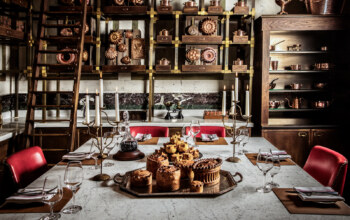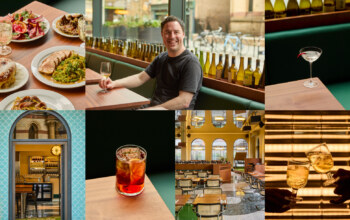Ten reasons travellers are giving traditional hotels a second thought

Traditional hotels are facing formidable competition from alternative accommodation options. From vacation rentals to homestays, travellers are finding compelling reasons to reconsider their lodging choices. Let’s delve deeper into the ten reasons why alternative accommodations are gaining popularity among travellers. Some might surprise you.
Home-like Comforts
Vacation rentals, homestays, and condos like the Chuan Park offer a level of comfort akin to home that traditional hotel rooms often lack. These accommodations boast fully equipped kitchens, laundry facilities, and multiple bedrooms, catering to travellers’ diverse needs. Families, in particular, appreciate the convenience these options provide, allowing them to enjoy a home-away-from-home experience during their travels. Having the ability to prepare meals, do laundry, and relax in a living room adds a sense of familiarity and ease. This makes a trip more enjoyable and stress-free.
Authentic experiences
Modern travellers are increasingly seeking authentic experiences that immerse them in the local culture and way of life. Traditional hotels can sometimes feel impersonal, offering a standardised experience that fails to capture a destination’s essence. In contrast, apartments that mimic the Chuan Park floor plan provide an immersive and homely experience. These are usually reminiscent of vacation rentals, bed & breakfast boutiques, and serviced apartments. Guests can freely interact with locals and explore off-the-beaten-path neighbourhoods, creating memories that last a lifetime.
Cost savings
Travelling can be expensive, and accommodation costs often make up a significant portion of the overall budget. Alternative accommodations like vacation rentals or hostels offer a more wallet-friendly environment when pitched against conventional hotels. With lower rates and the ability to share costs with other travellers, these options provide cost-savings, especially for those on a tight budget. This allows the allocation of more resources to experiences, activities, and dining, enhancing the overall travel experience without breaking the bank.
Unique accommodations
Traditional hotels often follow a cookie-cutter design, offering standardised rooms and amenities that lack character and charm. On the other hand, alternative accommodations range from treehouses and yurts to converted historical buildings. Travellers are drawn to these one-of-a-kind accommodations that offer a truly memorable and immersive experience.
Flexibility
One of the key advantages of alternative accommodations is the flexibility they offer to travellers. Unlike traditional hotels, most alternative accommodations provide greater flexibility and autonomy. Vacation rentals, for example, typically offer fully-equipped kitchens, living spaces, and private entrances. This lets guests tweak things to their preferences. Whether it’s cooking a meal, relaxing in a spacious living room, or enjoying a leisurely morning, these options give travellers more control over their schedules. This flexibility is particularly valuable for families, groups, and long-term travellers who seek a more personalized stay during their trip.
Personalisation
Alternative accommodations often offer a more personalised experience compared to traditional hotels. Vacation rental or bed and breakfast hosts may offer personalised recommendations, local tips, and a more attentive level of service. These personal touches create a warm and welcoming atmosphere that guests appreciate. By fostering a sense of connection and hospitality, hosts can create memorable experiences that leave a lasting impression on guests.
Privacy
Privacy is a top priority for many travellers, especially those seeking a tranquil and secluded retreat during their journey. Alternative accommodations like private villas, cottages, or apartments offer greater privacy compared to traditional hotels. Here, guests may have to share common areas with other travellers. On the flip side, private leases tend to offer a more secluded environment. These may range from private pools or spacious living rooms without disturbances.
Local integration
One key advantage of staying in alternative accommodations is the opportunity to integrate into the local community and culture. Traditional hotels are often located in touristy areas and cater to a transient clientele. Alternative accommodations, however, are typically situated in residential neighbourhoods, allowing guests to experience life like a local.
Conclusion
From home-like comforts to cost savings, these accommodations care for a diverse range of preferences and priorities. By choosing alternative accommodations, travellers have been able to enjoy a more personalised, immersive, and sustainable travel experience. As the travel landscape evolves, traditional hotels may face increasing competition from these innovative and forward-thinking lodging options.
The editorial unit























Facebook
Twitter
Instagram
YouTube
RSS